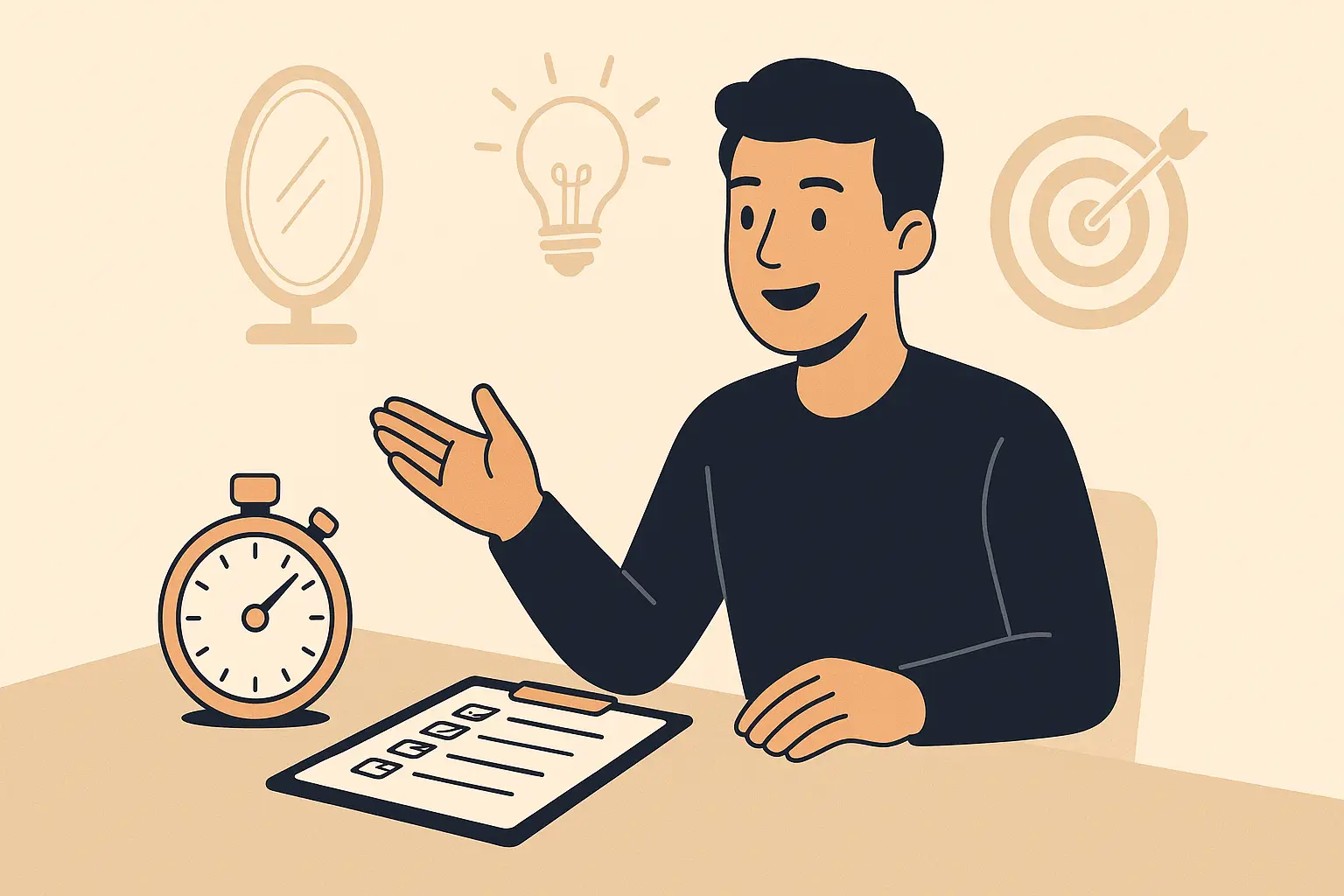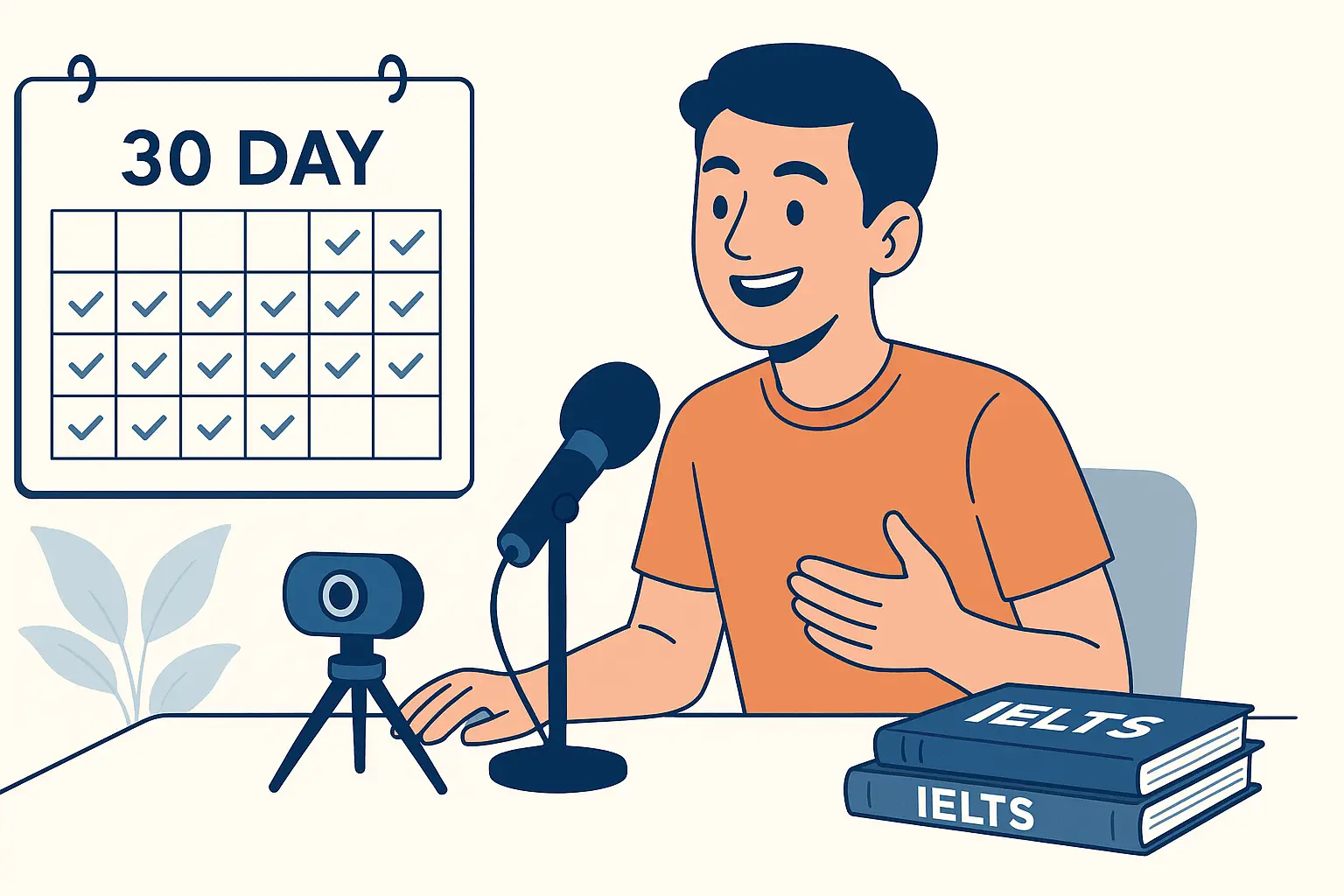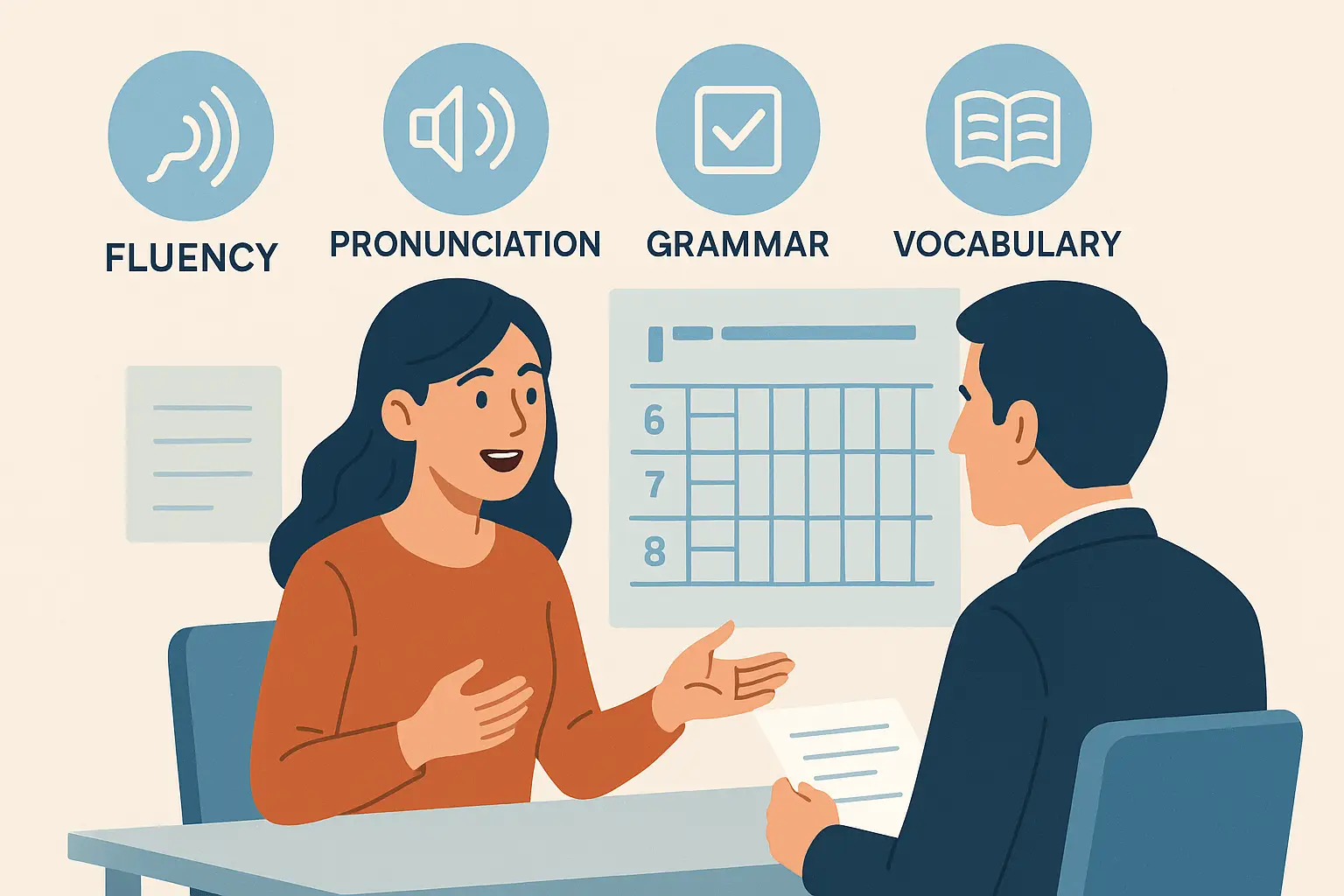- Understanding the Real Challenge of Part 1
- How I Coach My Students to Succeed in Part 1
- IELTS Speaking Part 1 Sample Questions & Band 7+ Answers
- Fluency, Vocabulary, and Confidence — How They Affect Your Score
- How to Practise Effectively for Speaking Part 1
- Final Thoughts: You Can Master IELTS Speaking Part 1
- FAQs – IELTS Speaking Part 1
As an international IELTS teacher working with students from over 30 countries, I’ve seen how the IELTS Speaking Part 1 often trips up even fluent English users. Many assume the questions are simple, but in reality, the pressure of the test environment—and the need to sound natural yet structured—makes this section tricky.
In this post, I’ll break down real student struggles, show you how to overcome them, and share sample questions, answers, and strategies that have helped my students consistently achieve Band 7 and above. Whether you’re preparing for your first test or aiming to boost your score, this guide is packed with practical help.
Understanding the Real Challenge of Part 1
IELTS Speaking Part 1 lasts about 4–5 minutes and includes basic, familiar questions. You might hear things like:
- Where do you live?
- Do you enjoy your job?
- What do you do in your free time?
But here’s what I’ve seen with many of my students:
🟥 They give short, robotic answers (e.g., “Yes, I do” or “No, I don’t”)
🟥 They speak too fast or too slowly under pressure
🟥 They forget to extend their answers naturally
🟥 Their fluency drops due to nerves or lack of vocabulary
And all of this can keep your score stuck below Band 7.
How I Coach My Students to Succeed in Part 1
Over the years, I’ve developed a few go-to strategies that work well across cultures and proficiency levels. Here’s what I teach every student:
- Always extend your answers. If you’re asked, “Do you like music?” don’t just say, “Yes.” Instead, say:
“Yes, I really enjoy listening to music, especially pop and acoustic genres. It helps me relax after work.” - Avoid rehearsed answers. Examiners are trained to spot memorised content. Keep your language natural and relevant.
- Use linking phrases to sound smooth and confident:
- To be honest…
- Actually…
- Well, I’d say…
- In my opinion…
- Don’t panic if you don’t know the answer. You can still respond naturally:
“I’m not really into sports, to be honest, but if I had to choose, I’d say football, since my friends play it often.”
For a full breakdown of the IELTS Speaking format, I recommend reading the Complete IELTS Speaking Guide and the companion post on Speaking Parts Format & Strategies.
IELTS Speaking Part 1 Sample Questions & Band 7+ Answers
Here are examples I use in class to model Band 7+ performance:
🏠 Topic: Hometown
Q: Where are you from?
A: I’m from a small town just outside of Dhaka. It’s a quiet place with lots of greenery, and I love the peaceful atmosphere.
Q: Do you like your hometown?
A: Yes, I do. Even though it’s not very modern, it has a strong sense of community and I always feel safe and comfortable there.
🎵 Topic: Music
Q: What kind of music do you like?
A: I’m a huge fan of indie pop and soft rock. I usually listen to music while commuting or studying—it helps me stay focused.
Q: Did you learn any musical instrument as a child?
A: Yes, I played the guitar for a couple of years. I wasn’t very good, but I really enjoyed it and still play occasionally.
📖 Topic: Reading
Q: Do you enjoy reading?
A: Definitely. Reading helps me escape from daily stress, and I especially enjoy self-help books and biographies.
Q: What kinds of books are popular in your country?
A: These days, I think thrillers and motivational books are very popular, especially among university students.
Fluency, Vocabulary, and Confidence — How They Affect Your Score
In Part 1, you’re being tested on fluency and coherence, lexical resource, grammar, and pronunciation. I’ve noticed that many students:
✅ Speak clearly but don’t vary their vocabulary
✅ Use correct grammar but lack confidence
✅ Sound fluent but make repetitive mistakes
This is why mock practice, feedback, and strategic learning are key. Sites like IELTS.org, British Council IELTS, and IELTS IDP offer great resources—but you need consistent feedback to improve.
I often record my students during mock tests and help them self-assess using the public band descriptors. Within two weeks, many of them start sounding far more natural and confident.
How to Practise Effectively for Speaking Part 1
Here’s what I recommend to all my learners:
🔹 Practise with a timer. Record yourself answering 10 random Part 1 questions in under 5 minutes.
🔹 Use mirrors or video. Watch your body language and eye contact.
🔹 Focus on natural speech. It’s okay to pause briefly, but avoid long hesitations or overthinking.
🔹 Get feedback. Join speaking clubs or find a partner who can help you improve your fluency and vocabulary.
Final Thoughts: You Can Master IELTS Speaking Part 1
Remember, IELTS Speaking Part 1 isn’t just about speaking English—it’s about sounding natural, fluent, and confident under pressure. You already have the ideas in your head. Now it’s about expressing them smoothly.
I’ve helped hundreds of students move from Band 6 to Band 7.5+ by focusing on simple strategies, consistent practice, and realistic feedback. You can do the same.
For more expert breakdowns of the IELTS Speaking test, check out:
FAQs – IELTS Speaking Part 1
Q1: Can I ask the examiner to repeat the question?
Yes, absolutely. You can say, “Could you repeat that, please?” It doesn’t affect your score.
Q2: How long should my answers be in Part 1?
Your answers should be 2–4 sentences long—enough to show fluency, but not too long that you go off-topic.
Q3: Will using idioms help improve my score?
Only if they sound natural and are used correctly. Avoid forced idioms; focus on clear and accurate vocabulary.
Q4: What if I don’t know the answer?
That’s fine! Be honest and still give a relevant response. Examiners care more about how you communicate than what you know.
Q5: Should I speak in British or American English?
Both are acceptable. Just be consistent in pronunciation and spelling.




